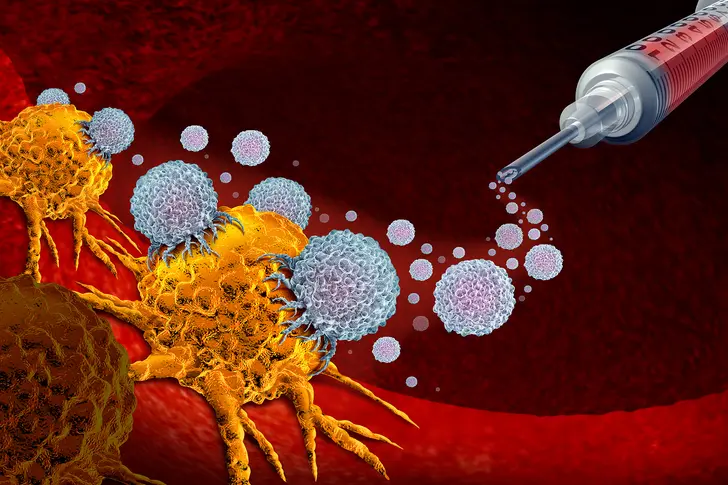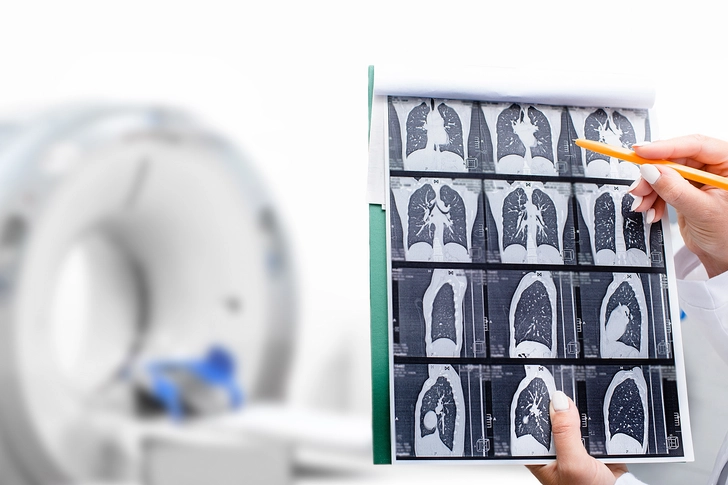- Overview
- Causes, Risks & Prevention
- Signs & Symptoms
- Tests & Diagnosis
- Your Lung Cancer Care Team
- Treatment
- Living With
- Remission & Recurrence
- Support & Resources
- Appointment Prep
- View Full Guide
Immunotherapy for Lung Cancer: What to Know


When Immunotherapy Stops Working
Immunotherapy has been a game changer for people living with advanced lung cancer. It helps your body's immune system find and destroy cancer cells, even when they try to hide. But it doesn't work for everyone. If you or a loved one is scheduled to have lung cancer immunotherapy, you need to know the warning signs of treatment failure and what to do.

Changes in Your Symptoms
If you notice that existing symptoms are getting worse or new symptoms are developing, it could be a sign that your immunotherapy is becoming less effective. Tell your doctor if you have pain, more frequent or severe coughing, or trouble breathing. These symptoms may be side effects of the treatment, or they may mean your treatment isn't working.

Understanding Scan Results
Your doctor will schedule scans to monitor your cancer's response to immunotherapy. These may show if tumors are shrinking, staying the same size, or growing. Your cancer might look worse on the first CT scan after you start immunotherapy, but it may actually be getting better. Doctors call this "pseudoprogression." Immunotherapy can cause your tumor to swell and look bigger, but it doesn't mean the cancer has progressed.

Follow-Up Scans
Your doctor will review your scans and discuss your symptoms. If you feel OK and the doctor thinks you may have pseudoprogression, they'll usually suggest you wait two or three more treatment cycles (about two months) before getting another scan. If you feel worse and the scan shows a larger tumor and new lesions, immunotherapy likely isn't working. The doctor will recommend you stop it and try something else.

Other Treatment Options
If immunotherapy doesn't work, your doctor will discuss other ways to treat your cancer. These include chemotherapy, targeted drug treatments, and radiation. If these options also fail, your doctor may suggest you take part in a clinical trial. They provide access to cutting-edge treatments that are not yet approved for treating lung cancer. These include checkpoint inhibitors, therapeutic vaccines, and adoptive T-cell transfer.
PHOTO CREDITS:
Slide 1 - Lightspring / Shutterstock
Slide 2 - SofikoS / Shutterstock
Slide 3 - Peakstock / Shutterstock
Slide 4 - PeopleImages.com - Yuri A / Shutterstock
Slide 5 - PreciousJ / Shutterstock
SOURCES:
LUNGevity: "Immunotherapy," "5 Key Points on Immune Checkpoint Inhibitors for Lung Cancer: Game Changer or Just Leveling Up?"
Memorial Sloan Kettering Cancer Center: "Combination Immunotherapy Shows New Promise for Lung Cancer."
Dana-Farber Cancer Institute: "Immunotherapy and Lung Cancer: Exploring the Latest Research."
National Cancer Institute: "End-of-Life Care for People Who Have Cancer," "Immunotherapy."
Jack Jacoub, MD, medical oncologist and director of thoracic oncology, MemorialCare Cancer Institute, Orange Coast Memorial Medical Center, Fountain Valley, CA.
UpToDate: "Toxicities associated with checkpoint inhibitor immunotherapy."
Journal of the National Cancer Institute: "When Progressive Disease Does Not Mean Treatment Failure: Reconsidering the Criteria for Progression."